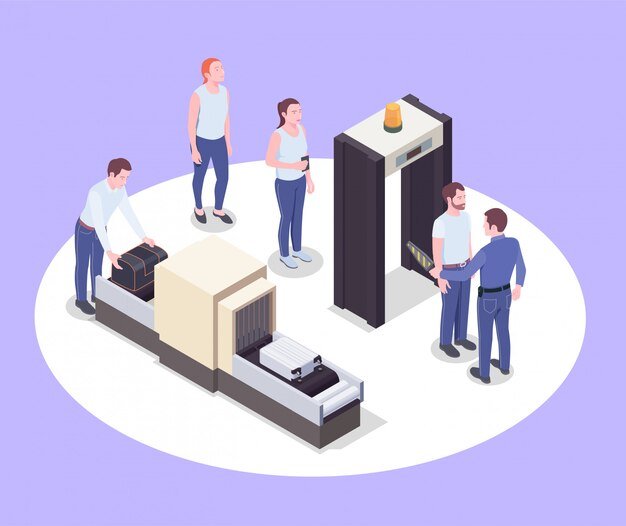Efficient customer service is the backbone of any successful business, and the importance of a queue management system (QMS) cannot be overstated. Whether in Rawalpindi, Lahore, or Karachi, businesses are leveraging these systems to enhance service delivery, minimize wait times, and improve customer satisfaction. This blog explores the significance, applications, and benefits of queue management systems in these key cities of Pakistan.
What Is a Queue Management System?
A queue management system (QMS) is a solution designed to optimize customer flow, reduce wait times, and enhance service efficiency. It involves:
- Digital ticketing systems: Customers receive tickets indicating their place in line.
- Real-time updates: Displays and notifications provide information on queue status.
- Data analytics: Insights into customer behavior and operational efficiency.
QMS is vital in industries such as healthcare, banking, retail, and government services where high customer traffic is common.
The Need for Queue Management Systems in Pakistan
In a country with rapidly growing urban centers like Rawalpindi, Lahore, and Karachi, managing customer traffic effectively has become a challenge. Key drivers for QMS adoption include:
- Population Growth: High population density leads to crowded service centers.
- Increased Demand for Services: Businesses and public offices experience rising customer volumes.
- Customer Expectations: Modern consumers demand efficient and hassle-free service experiences.
- Technological Advancements: The availability of affordable tech solutions makes QMS implementation feasible.
Rawalpindi, a city known for its bustling markets and service centers, greatly benefits from queue management systems. Key areas of application include:
1. Healthcare Facilities
Hospitals and clinics in Rawalpindi use QMS to manage patient flow, ensuring timely consultations and minimizing overcrowding.
2. Government Offices
Public offices handling services like passport applications and vehicle registration rely on QMS for efficient operations.
3. Retail and Banking
Retail outlets and banks in Rawalpindi utilize digital ticketing to manage high customer volumes during peak hours.
The adoption of QMS in Rawalpindi reflects the city's commitment to enhancing customer service standards.
As Pakistan’s cultural and economic hub, Lahore has embraced QMS across various sectors. Notable applications include:
1. Educational Institutions
Universities and colleges in Lahore use QMS for managing admission processes and fee submissions efficiently.
2. Shopping Malls
Large malls in Lahore integrate QMS to manage queues at food courts, customer service desks, and parking facilities.
3. Hospitality Industry
Hotels and restaurants implement QMS to streamline check-ins, reservations, and dine-in services.
Lahore's vibrant economy and diverse industries make it a prime city for QMS implementation.
Being Pakistan's largest city and financial hub, Karachi faces unique challenges in managing customer queues. QMS addresses these challenges in:
1. Airports and Transportation
Karachi’s airports and bus terminals use QMS to enhance passenger experiences by reducing wait times and improving boarding processes.
2. Healthcare and Pharmacies
With a large population, healthcare facilities in Karachi leverage QMS to efficiently handle patient registrations and pharmacy queues.
3. Financial Institutions
Banks in Karachi integrate QMS to manage peak-hour crowds, providing a seamless experience for customers.
Karachi’s dynamic environment underscores the critical role of QMS in maintaining operational efficiency.
Benefits of Implementing Queue Management Systems
Adopting a queue management system offers several advantages:
- Reduced Wait Times: Streamlined operations minimize delays.
- Enhanced Customer Satisfaction: Real-time updates keep customers informed and reduce frustration.
- Improved Staff Productivity: Automation allows staff to focus on value-added tasks.
- Data-Driven Insights: Analytics help businesses optimize resources and improve service delivery.
- Brand Reputation: Efficient service builds trust and enhances brand loyalty.
Technological Advancements in Queue Management
Modern QMS solutions are powered by advanced technologies, including:
1. Cloud-Based Systems
Cloud solutions enable centralized management and scalability.
2. AI Integration
Artificial intelligence predicts customer flow and suggests optimal staffing levels.
3. Mobile Applications
Apps allow customers to join queues remotely, check wait times, and receive notifications.
4. IoT and Smart Displays
Connected devices and digital signage improve communication and streamline operations.
These innovations ensure that QMS solutions remain relevant and effective.
Best Practices for Implementing a Queue Management System
To maximize the effectiveness of a QMS, businesses should consider:
- Understanding Customer Needs: Tailor the system to the specific requirements of your industry and audience.
- Staff Training: Ensure employees are well-versed in using the system.
- Real-Time Monitoring: Use analytics to identify bottlenecks and improve workflows.
- Customization: Personalize ticketing and notifications to enhance user experience.
- Feedback Mechanisms: Regularly gather customer feedback to refine the system.
Conclusion
Queue management systems are transforming customer service in Rawalpindi, Lahore, and Karachi. By streamlining operations and improving customer experiences, they enable businesses to thrive in today’s competitive landscape. Whether in healthcare, retail, or government services, the adoption of QMS is a testament to Pakistan's growing emphasis on efficiency and customer satisfaction.
FAQs
1. What is a queue management system, and how does it work?
A queue management system optimizes customer flow using digital ticketing, real-time updates, and analytics, reducing wait times and improving service efficiency.
2. Why is a queue management system important in cities like Karachi?
With high population density and service demand, QMS helps manage crowds efficiently, enhancing customer experiences and operational productivity.
3. Can small businesses in Lahore benefit from QMS?
Yes, small businesses can use affordable QMS solutions to improve customer service and streamline operations, even with limited resources.
4. What technologies are used in modern queue management systems?
Modern QMS solutions leverage cloud-based systems, AI, mobile apps, IoT, and real-time analytics for enhanced performance.
5. How can businesses ensure the success of a queue management system?
By tailoring the system to customer needs, training staff, monitoring performance, and incorporating feedback, businesses can maximize the benefits of QMS.







